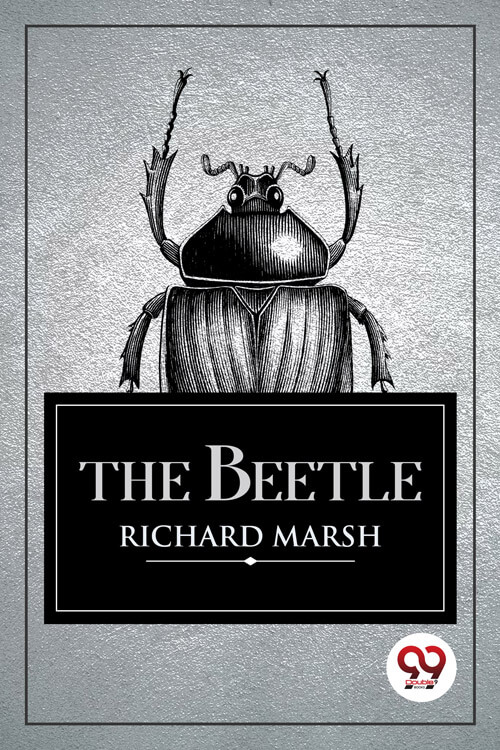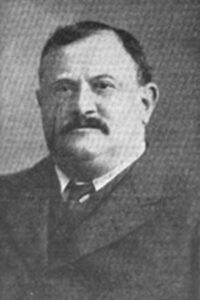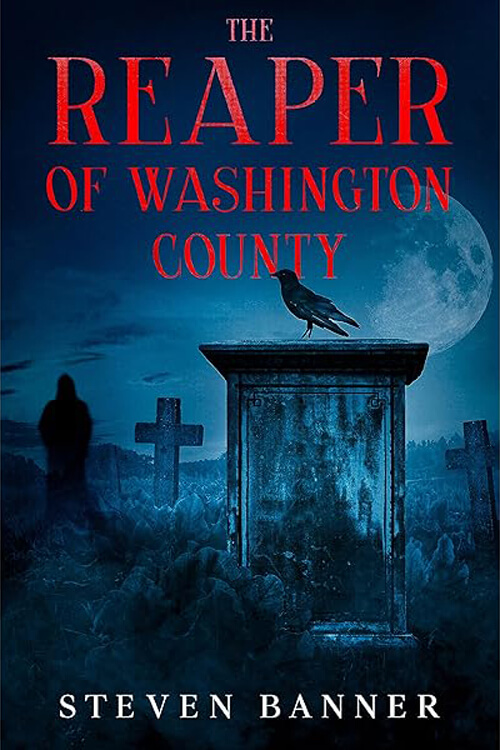
The Beetle, A Mystery
When I left, two or three other persons had appeared upon the scene, and the man in rags was addressing them with a degree of frankness, which, in that direction, left little to be desired. I slunk away unnoticed. But had not gone far before I had almost decided that I might as well have thrown in my fortune with the bolder wretch, and smashed a window too. Indeed, more than once, my feet faltered as I all but returned to do the feat which I had left undone.
A more miserable night for an out-of-door excursion I could hardly have chosen. The rain was like a mist and was not only drenching me to the skin but also rendering it challenging to see more than a little distance in any direction. The neighbourhood was poorly lighted. It was one in which I was a stranger; I had come to Hammersmith as a last resort. It had seemed to me that I had tried to find some occupation which would enable me to keep body and soul together in every other part of London and that now only Hammersmith was left. And, at Hammersmith, even the workhouse would have none of me!
Retreating from the inhospitable portal of the casual ward, I had taken the first turning to the left—and, at the moment, had been glad to take it. In the darkness and the rain, the locality I entered appeared unfinished. I seemed to be leaving civilization behind me. The path was unpaved, the road rough and uneven, as if it had never been adequately made. Houses were few and far between. Those which I did encounter seemed, in the imperfect light, amid the general desolation, to be cottages which were crumbling to decay.
Exactly where I was, I could not tell. I had a faint notion that, if I only kept on long enough, I should strike some part of Walham Green. How long I should have to keep on, I could only guess. Not a creature seemed to be about of whom I could make inquiries. It was as if I was in a land of desolation.
I suppose it was between eleven o’clock and midnight. I had not given up my quest for work till all the shops were closed—and in Hammersmith, that night, at any rate, they were not early closers. Then I lounged about dispiritedly, wondering what I could do next. It was only because I feared that if I attempted to spend the night in the open air, without food, when the morning came, I would be broken up and fit for nothing, so I sought a night’s free board and lodging. It was hunger that drove me to the workhouse door.
Read or download Book
Richard Marsh
Richard Marsh (12 October 1857 – 9 August 1915) was the pseudonym of the English author Richard Bernard Heldmann. A best-selling and prolific author of the late 19th century and the Edwardian period, Marsh is best known now for his supernatural thriller novel The Beetle, which was published the same year as Bram Stoker’s Dracula (1897), and was initially even more popular, outselling Dracula six times over. The Beetle remained in print until 1960. Marsh produced nearly 80 volumes of fiction and numerous short stories in genres including horror, crime, romance, and humour. Many of these have been republished recently, beginning with The Beetle in 2004. Marsh’s grandson Robert Aickman was a notable writer of short “strange stories”.
Biography
Richard Bernard Heldmann was born on 12 October 1857 in North London to lace merchant Joseph Heldmann (1827–96) and Emma Marsh (1830–1911), a lace manufacturer’s daughter. Heldmann began publishing fiction in 1880 in the form of boys’ school and adventure stories for magazine publications. The most important was Union Jack, a high-quality boys’ weekly magazine associated with authors G. A. Henty (1832–1902) and W.H.G. Kingston (1814–80). Henty promoted the young Heldmann to co-editor in October 1882, but Heldmann’s association with the publication ended abruptly in June 1883. After this, Bernard Heldmann published no further fiction under that name and began to use the pseudonym “Richard Marsh” a few years later.
For a long time, the reasons for the end of Heldmann’s business relationship with Henty and his adoption of a pseudonym were a mystery, with some scholars suggesting that Heldmann was anxious to obscure his father’s German-Jewish origins. It has been discovered recently that Heldmann had been sentenced to eighteen months’ hard labour at the West Kent Quarter Sessions on 10 April 1884 for issuing a series of forged cheques in Britain and France during 1883.
Heldmann adopted his pseudonym on his release from jail, and fiction by “Richard Marsh” began appearing in literary periodicals in 1888, with two novels being published in 1893. Marsh wrote and published prolifically during the 1890s and the early years of the 20th century. He died from heart disease in Haywards Heath, Sussex, on 9 August 1915. Several of his novels were published posthumously.
Short fiction
Marsh was also adept at short stories, publishing in literary periodicals such as Household Words, Cornhill Magazine, The Strand Magazine, and Belgravia, as well as in several book collections. The stories The Seen and the Unseen (1900), Marvels and Mysteries (1900), Both Sides of the Veil (1901), and Between the Dark and the Daylight (1902) (illustrated by Oscar Wilson) all feature an eclectic mix of humour, crime, romance, and the occult.
In numerous magazine editions, he also published serial short stories, developing characters whose adventures could be related in discrete stories. Mr. Pugh and Mr. Tress of Curios (1898) are rival collectors between whom pass a series of bizarre and discomfiting objects – poisoned rings, pipes that seem to come to life, a phonograph record on which a murdered woman seems to speak from the dead, and the severed hand of a 13th-century aristocrat. One of Marsh’s most striking creations is Miss Judith Lee, a young teacher of deaf pupils whose lip-reading ability involves her with mysteries that she solves by acting as a detective. Another famous creation was Sam Briggs, whose fictional escapades as a young office clerk and later as a soldier of World War I were published by The Strand magazine during the early 20th century.






